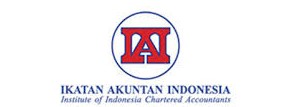Pengaruh Corporate Social Responsibility terhadap Penghindaran Pajak dengan Kepemilikan Institusional sebagai Moderasi
Abstract
This study examines the effect of corporate social responsibility on tax avoidance with institutional ownership as a moderating variable. This research is a type of causative research. The population in this study is the manufacturing industry sector companies listed on the Indonesia Stock Exchange (IDX) in 2019-2021. The research sample was obtained using purposive sampling method which produced 138 observations. The results of this study explain that Corporate Social Responsibility has no significant effect on tax avoidance practices. And institutional ownership cannot moderate or weaken the relationship between Corporate Social Responsibility and tax avoidance. Subsequent research, added other independent variables and added the research time span so that it would provide better results.
References
Adityamurti, E., & Ghozali, I. (2017). Pengaruh Penghindaran Pajak dan Biaya Agensi Terhadap Nilai Perusahaan. Diponegoro Journal of Accounting, 6(3), 1–12.
Amalia, F. A. (2019). Pengungkapan Corporate Social Responsibiblity (CSR) dan Penghindaran Pajak: Kepemilikan Institusional Sebagai Variabel Moderasi. Jurnal Akuntansi Dan Ekonomi, 4(2), 14–23.
Bagus, I., & Indra, N. (2019). E-Jurnal Akuntansi Universitas Udayana Pengaruh Pengungkapan CSR dan Tingkat Likuditias Pada Agresivitas Pajak Dengan Kepemilikan Institusional Sebagai Variabel Moderasi Fakultas Ekonomi dan Bisnis Universitas Udayana ( Unud ), Bali , Indonesia. 27, 1094–1119.
Davis, A. K., Guenther, D. A., Krull, L. K., & Williams, B. M. (2016). Do socially responsible firms pay more taxes? Accounting Review, 91(1), 47–68. https://doi.org/10.2308/accr-51224
Dyreng, S. D., Hanlon, M., & Maydew, E. L. (2010). The effects of executives on corporate tax avoidance. Accounting Review, 85(4), 1163–1189. https://doi.org/10.2308/accr.2010.85.4.1163
Edison, A. (2017). Struktur Kepemilikan Asing, Kepemilikan Institusional, dan Kepemilikan Manajerial Pengaruhnya terhadap Luas Pengungkapan Corporate Social Responsibility (CSR) (Studi Empiris pada Perusahaan Sektor Utama yang terdaftar di Bursa Efek Indonesia Tahun 2013-20. BISMA: Jurnal Bisnis Dan Manajemen, 11(2), 164–175.
Hidayat, K., Ompusunggu, A. P., & Suratno, H. (2016). Pengaruh Corporate Social Responsibility Terhadap Agresivitas Pajak Dengan Insentif Pajak Sebagai Pemoderasi (Studi pada Perusahaan Pertambangan yang Terdaftar di BEI). Jurnal Ilmiah Akuntansi Fakultas Ekonomi, 2(2), 39–58.
Hoi, C. K., Wu, Q., & Zhang, H. (2013). Is corporate social responsibility (CSR) associated with tax avoidance? Evidence from irresponsible CSR activities. Accounting Review, 88(6), 2025–2059. https://doi.org/10.2308/accr-50544
Juliana, D., Arieftiara, D., & Nugraheni, R. (2020). Pengaruh Intensitas Modal, Pertumbuhan Penjualan,Dan Csr Terhadap Penghindaran Pajak. PROSIDING BIEMA Business Management, Economic, and Accounting National Seminar, 1, 1257–1271.
Kesseler, J. (2004). Tax Avoidance Purpose and Section 741 of taxes act 1988. British Tax Review.
Lanis, R., & Richardson, G. (2012). Corporate social responsibility and tax aggressiveness: An empirical analysis. Journal of Accounting and Public Policy, 31(1), 86–108. https://doi.org/10.1016/j.jaccpubpol.2011.10.006
Maraya, A. D., & Yendrawati, R. (2016). Pengaruh corporate governance dan corporate social responsibility disclosure terhadap tax avoidance: studi empiris pada perusahaan tambang dan CPO. Jurnal Akuntansi & Auditing Indonesia, 20(2), 147–159. https://doi.org/10.20885/jaai.vol20.iss2.art7
Ningrum, A. K., Suprapti, E., & Hidayat Anwar, A. S. (2018). Pengaruh Pengungkapan Corporate Social Responsibility Terhadap Tax Avoidance Dengan Gender Sebagai Variabel Moderasi (Studi Empiris Pada Perusahaan Manufaktur Yang Terdaftar Di Bursa Efek Indonesia Tahun 2016). BALANCE: Economic, Business, Management and Accounting Journal, 15(01). https://doi.org/10.30651/blc.v15i01.1260
Putri, V. R., & Putra, B. I. (2017). Pengaruh Leverage, Profitability, Ukuran Perusahaan Dan Proporsi Kepemilikan Institusional Terhadap Tax Avoidance. Jurnal Manajemen Dayasaing, 19(1), 1–11. https://doi.org/10.23917/dayasaing.v19i1.5100
Rego, S. O., & Wilson, R. (2012). Equity Risk Incentives and Corporate Tax Aggressiveness. Journal of Accounting Research, 50(3), 775–810. https://doi.org/10.1111/j.1475-679X.2012.00438.x
Sandy, S., & Lukviarman, N. (2015). Pengaruh corporate governance terhadap tax avoidance: Studi empiris pada perusahaan manufaktur. Jurnal Akuntansi & Auditing Indonesia, 19(2), 85–98. https://doi.org/10.20885/jaai.vol19.iss2.art1
Septiadi, I., Robiansyah, A., & Suranta, E. (2017). Pengaruh Manajemen Laba, Corporate Governance, Dan Corporate Social Responsibility Terhadap Tax Avoidance. Journal of Applied Managerial Accounting, 1(2), 114–133. https://doi.org/10.30871/jama.v1i2.502
Thomsen, M., & Watrin, C. (2018). Tax avoidance over time: A comparison of European and U.S. firms. Journal of International Accounting, Auditing and Taxation, 33, 40–63. https://doi.org/10.1016/j.intaccaudtax.2018.11.002
Waluyo. (2012). Akuntansi Pajak. Salemba Empat.
Wardani, D. K., & Purwaningrum, R. (2018). Pengaruh Karakteristik Perusahaan Dan Corporate Social Responsibility Terhadap Penghindaran Pajak. Jurnal Riset Akuntansi Dan Keuangan, 14(1), 1. https://doi.org/10.21460/jrak.2018.141.294
Wibisono, Y. (2007). Membedah Konsep & Aplikasi CSR. Fascho Publishing.







.png)
.png)
